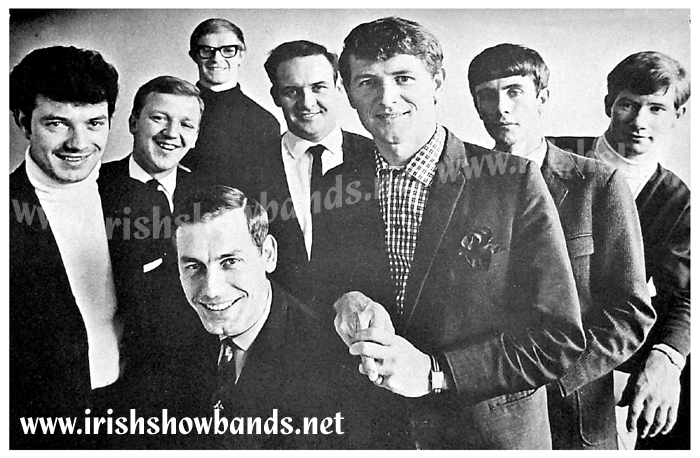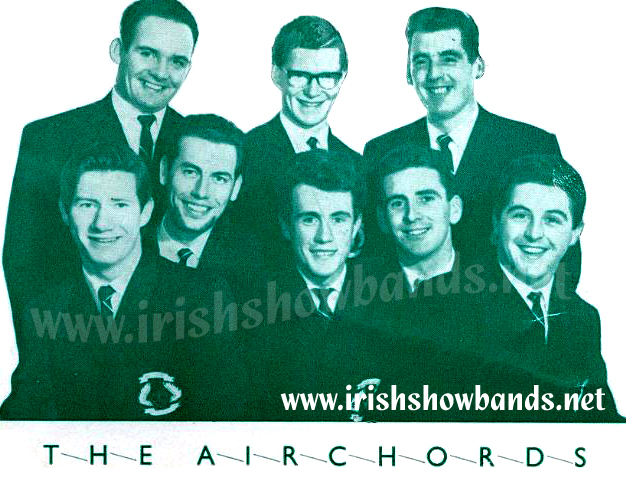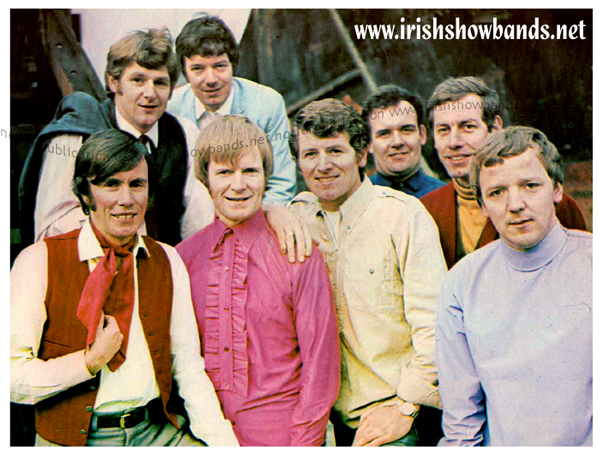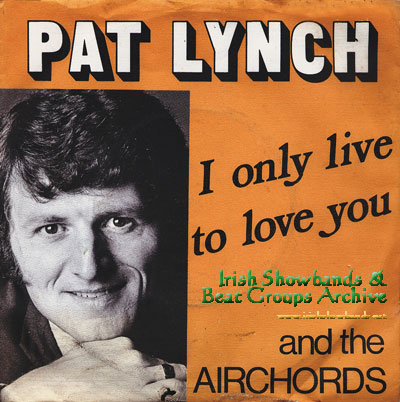|
||||||
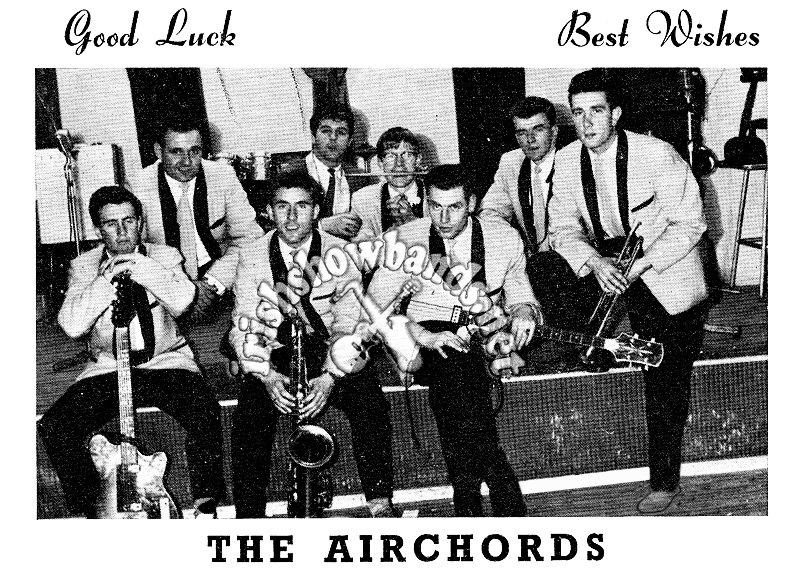 |
||||||
|
When eight young members of the Irish Air Corps decided to put a showband together in 1960, it was fitting that they should decide to name the band The Airchords, a composite of both jobs! The band was to last for 12 years, and in that time, achieve many milestones, including topping the Irish singles charts twice. For the first few years, The Airchords stayed semi-professional, combining their day jobs in Baldonnell with their music careers, but in 1964, at the height of the showband boom, they took the big step, and turned professional. Two band-members, Danny Ellis and Myles Mooney, were also writing original songs, and in 1965 they released their first record, “A Knock At The Door”, both sides featuring songs composed by Ellis and Mooney. Lead vocalist at this time was Joe Fitzmaurice, who left the band soon after to join The Altonaires. Liam Hurley, was musical arranger and played lead guitar. Bassist was Ernie Berkenheier and drummer Seanie Kinsella completed the rhythm section. Al Devine and Arthur O’Neill played tenor and alto saxes, while original trumpeter Phil O’Reilly was soon replaced by Emmet Wynne. Pat Lynch, a young singer from Cork, replaced Fitzmaurice, and he was to stay with the band until they went off the road in 1972. Lynch was highly regarded by his peers, and in 1967, The Airchords went to No.1 in the Irish charts with a waltz, “Treat My Daughter Kindly”. This stayed at No.1 for four weeks. There were many changes in The Airchords line-up in their twelve-year existence. Liam Hurley and Danny Ellis went to the Jim Farley All-Stars and were replaced by Pat Lynch’s brother Tony who came from The Hoedowners and Dermot Ryan who had been working with a band based in Britain. Johnny Brown from a group called Magazine replaced bassist Berkenheier. In 1969, five members left and formed a new band, The Wheels, to back Red Hurley, ironically, a younger brother of founder member Liam. Norman Clifford, Billy Hopkins, Dave Curran and Arthur Madden were enlisted. Fergus Burke from The Millionaires replaced Tony Lynch who emigrated to Australia. In 1968, Pat Lynch almost made it to the Eurovision Song Contest, when the song he sang, “Kinsale” was pipped by just one point by “Chance Of A Lifetime” sung by boxer Barry McGuigan’s father, Pat McGeegan. The band performed many times on RTE television, including appearances on “The Showband Show” and “The Late Late Show”, and on Gay Byrne’s “17 Club” on radio. When The Airchords had their second No.1 in 1971, “When We Were Young”, they had gone through an almost complete change of line-up. In fact, not one of the original eight who formed the band in 1960 were still there. Still, the record held the No.1 spot for six weeks, and is still requested on radio programmes today. The Airchords brought twelve years on the road to an end in 1972, though some of the members still play in various parts of Ireland and Britain. all text copyright Proinsios Kinndi and should not be copied or used without written permission |
||||||
|
||||||
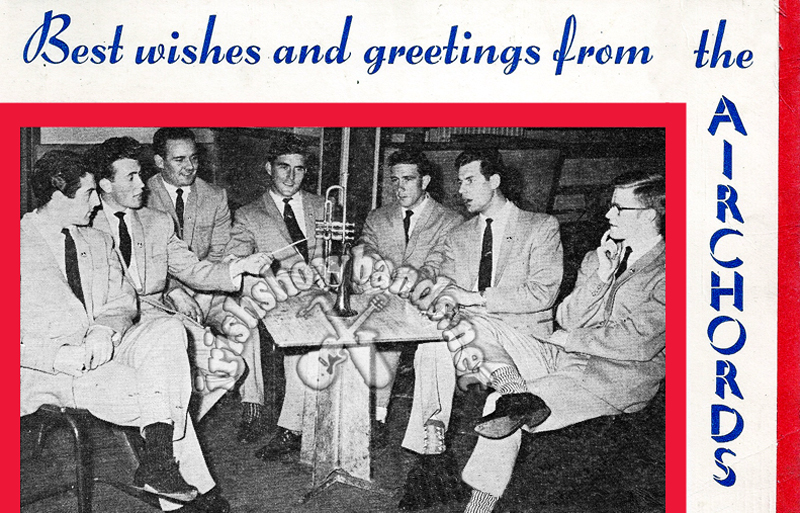 |
||||||
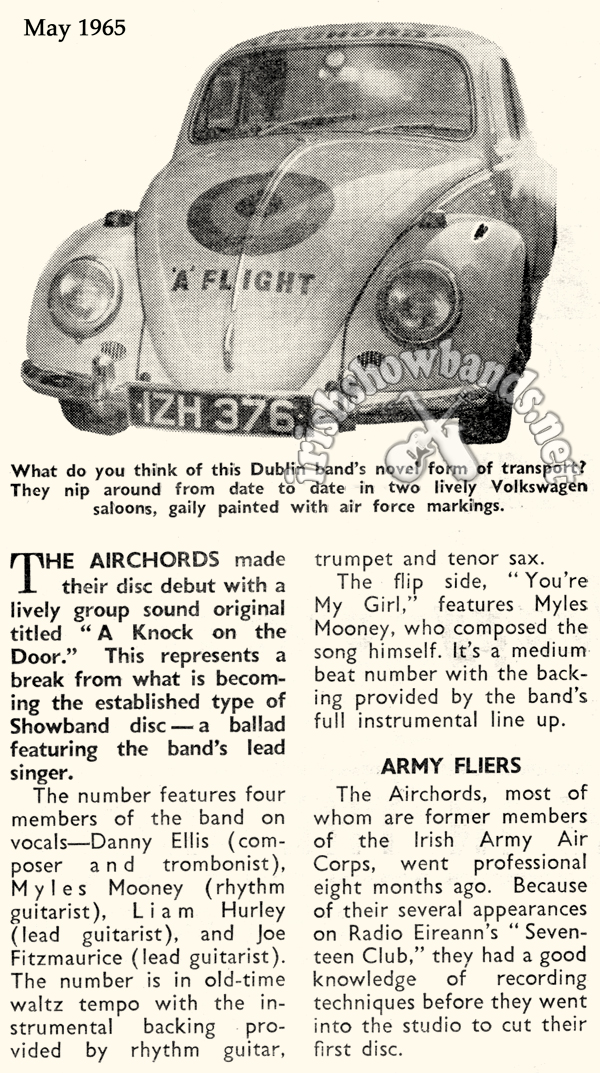 |
||||||
|
||||||
|
||||||
| Gateway | Showbands Index | Beat-Groups Index | Ceili bands | Submit a Photo | ||||||
|
If your '60s/early '70s showband is
not here, please send a photo and the line-up via email and it will be
added to the Irish Bands Archive |
||||||
| © francis beirne kennedy | 2001-2020 | ||||||
